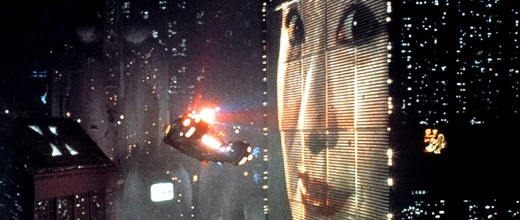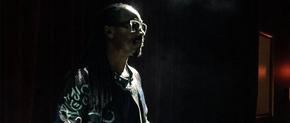The views expressed in our content reflect individual perspectives and do not represent the authoritative views of the Baha'i Faith.
If you’ve seen the Blade Runner films, you’re familiar with the premise: to be human, you have to have empathy.
For those of you who have not seen the original movie, Detective Deckard, played by Harrison Ford, has the job of finding escaped androids and putting them out of commission. (Presumably, androids are a hazard to humanity.) This is a challenging task, as the androids look exactly like genuine humans and behave almost like them. Deckard is equipped with a test–a series of questions that gauge empathy and a device for measuring those responses–and an oversize pistol, his metaphoric balance scale and sword of justice.
 Throughout the movie, Deckard looks for signs of a few escaped androids, and pursues them. You learn quickly that Deckard is troubled, and begin to suspect that he might even be an android himself. He is good at his job, but his job is hard–as he attempts to weigh and judge the humanity of the androids, he has to judge his own humanity, too. As he investigates the truth about others, he has to learn the truth about himself.
Throughout the movie, Deckard looks for signs of a few escaped androids, and pursues them. You learn quickly that Deckard is troubled, and begin to suspect that he might even be an android himself. He is good at his job, but his job is hard–as he attempts to weigh and judge the humanity of the androids, he has to judge his own humanity, too. As he investigates the truth about others, he has to learn the truth about himself.
What draws us to entertainment about investigators? Books, episodic programs and movies about detectives solving enigmas comprise an entire mystery genre, a section with sub-genres in the library and on your favorite streaming website. Blade Runner represents one specific archetype in the genre: the troubled and flawed investigator. We probably enjoy mysteries like Blade Runner because they deal with the struggle of good vs. evil, with our resistance to overwhelming oppression, and most importantly with what makes us truly human. They remind us of our own search for truth. In my opinion, the particular case of Deckard rings true for many people because it perfectly captures the anxiety that goes along with questioning reality.
The Baha’i teachings say:
The essence of all that We have revealed for thee is Justice, is for man to free himself from idle fancy and imitation, discern with the eye of oneness His glorious handiwork, and look into all things with a searching eye. – Baha’u’llah, Tablets of Baha’u’llah, p. 157.
All people have the capability of finding and recognizing the truth. It is an essential part of what it means to be human, because that search for truth is one of the basic reasons we exist. In answer to that age-old question—What is the meaning of life?—the Baha’i teachings indicate that our purpose revolves around searching for, investigating and finding the truth of our spiritual reality. Fortunately, we can observe and discover all the clues we need to find that truth in this world.
Baha’u’llah wrote:
All these signs are reflected and can be seen in the book of existence, and the scrolls that depict the shape and pattern of the universe are indeed a most great book. Therein every man of insight can perceive that which would lead to the Straight Path and would enable him to attain the Great Announcement. Consider the rays of the sun whose light hath encompassed the world. The rays emanate from the sun and reveal its nature, but are not the sun itself. Whatsoever can be discerned on earth amply demonstrateth the power of God, His knowledge and the outpourings of His bounty, while He Himself is immeasurably exalted above all creatures. – Ibid., p. 61.
This model of hidden spiritual forces is, on its face, a simple one for us in the scientific age to understand. We know that many of the forces which make up our reality are all invisible–gravity, weak interaction, strong interaction, electromagnetism. We can’t see these forces, but we can deduce and prove they exist by observing the signs and effects they produce.
The challenge, however, is that our physical world is right in front of us. We can taste it, we can smell it, we can feel it. But the other world–the greater, spiritual world, a reality that completely encompasses the physical world–is perfectly hidden. How can this make sense? The purpose of existence is to find the truth, and yet it is hidden from us. Is that even fair?
The fact is, we develop all the senses and attributes we need for this life before we arrive here. In the womb of our mother, we develop eyes and ears, etc., with no idea as to their function or purpose. Nature provides an environment for us to develop the things we need in our future walking and talking existence. While we are in the womb, however, those abilities only exist potentially. Our eyes are closed, our eardrums have no air, our feet have no ground to walk upon.
Might this explain the reason for our struggle to find the truth? We have faculties and attributes for living in this physical world that we developed in our embryonic state. To live in the next world, the one we call the afterlife, we must develop faculties and attributes for that inevitable next experience–our spiritual eyes and ears. Similar to the example of the embryo, those faculties only exist in potential while we live in this reality, and we must spend our time in this life growing and developing them. The way to begin doing that, the Baha’i teachings say, involves conducting your own independent search for the truth. Why? Because without it, our senses and our judgment suffer and die:
… blind imitation deadens man’s senses, and when an untrammeled search for reality is made, the world of humanity will be released from the shackles of blind imitation. – Abdu’l-Baha, from a letter to Martha Root.
Spoiler alert: In Detective Deckard’s case, he learned to use his heart to find the truth.

















Comments
Sign in or create an account
Continue with Facebookor